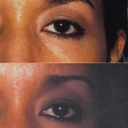Excessive Sweating
Just about everyone sweats while exercising, in anxiety provoking situations and in a hot room. But what if you were frequently drenched in a variety of professional, social and personal situations? The condition is called hyperhidrosis – excessive sweating – and it affects about 3% of the human population. Men and women of all ages (even children) and all ethnicities can suffer from exaggerated sweating, producing up to five times the amount of sweat required to regulate body temperature. An added insult is that body odor is frequently a problem as well. No one knows exactly what causes hyperhidrosis, but we do know the nervous system is responsible, not the sweat glands themselves.
Some cases of excessive sweating are caused by medication or conditions such as cancer, diabetes or menopause. If you suspect any of these may be an issue for you, see your primary care physician.
Primary hyperhidrosis – sweating that's not a side effect of something else – involving the armpits, groin, hands and feet and sometimes the face, back and chest, can literally affect almost every part of your life. One has to be ever vigilant, taking several showers a day, remembering to bring extra clothes, carry absorbent pads and so on. Clothing and shoes can be ruined, dry cleaning bills can skyrocket and even skin infections can result. Personal, social and business plans have to be very carefully arranged to accommodate potential problems.
If you suffer from hyperhidrosis, it makes sense to explore ways to get relief. It also makes sense to consult a board certified plastic surgeon with the training and experience to take you from the least invasive treatment option to outpatient surgery as your case may require. Dr. Elliot Jacobs has successfully treated hundreds of people with hyperhidrosis in New York. Request an appointment with him today.
New York Hyperhidrosis Treatment with Dr. Jacobs
Treatment for hyperhidrosis in New York with Dr. Jacobs will start with an in depth consultation. A thorough medical history and summary of your experience with excessive sweating will help Dr. Jacobs make a recommendation about where to start.
Many patients who consult Dr. Jacobs have already tried antiperspirants, but he may be able to prescribe something stronger than you have tried in the past for your armpits. To treat your hands and feet, a water bath of electrolytes and chemicals containing a mild electric current, a painless procedure called iontophoresis, can be helpful.
Some patients opt for treatment with Botox® Cosmetic, which can be used to block nerve stimulation of sweat glands. Dr. Jacobs can administer injections and work with you to determine if this is a reasonable option for your case.
A few patients choose an operation called surgical sympathectomy, in which nerves to the armpits are cut. This procedure is performed by a neurosurgeon and it sometimes results in "compensatory sweating" elsewhere on the body. Therefore, Dr. Jacobs will oftentimes recommend a simpler approach he calls "sweat lipo." Technically referred to as suction curettage, this liposuction-like procedure removes the bulbs of some of the sweat glands in your armpits, but not all. You'll experience a significant reduction in sweating, but not the total elimination that can cause unwanted effects.
Dr. Jacobs performs "sweat lipo" under twilight sedation in his fully accredited outpatient surgery suite. You will awaken quickly and gently after the procedure and experience no anesthesia hangover and very little discomfort from the surgery. You will only need dressings for two or three days, and the eventual scar will be a small as a blemish. Best of all, you should see a marked decrease in sweating in just a few days.
Since hyperhidrosis typically affects various areas of the body, many patients need more than one weapon in their arsenal. Dr. Jacobs will be pleased to assist you with a strategy that works for you. Contact him online or give us a call at 212-570-6080.
Hyperhidrosis FAQ
- Are there risks with "sweat lipo?"
Complications from this relatively simple procedure are quite rare. The most common risk is that you'll lose some armpit hair since some of the hair-producing bulbs are positioned near sweat-producing glands under the skin.
- Are there anti-anxiety measures that limit sweating?
Some people have some success in bringing down anxiety levels with yoga, biofeedback and psychotherapy. These measures don't work well for everyone, but they certainly can't hurt. There are a few medications that treat anxiety and reduce sweating, but long-term use is not recommended due to side effects.
- Are there any new treatments on the horizon?
Scientists are studying a new type of cream that has Botox-like effects. Since it is a cream, it can be applied to the skin rather than requiring an injection. It will most likely be available at some point via prescription only.







